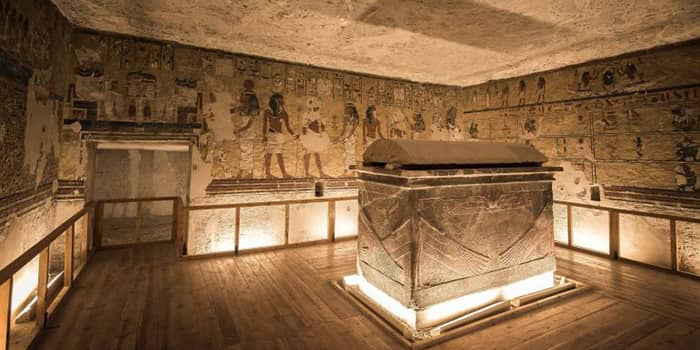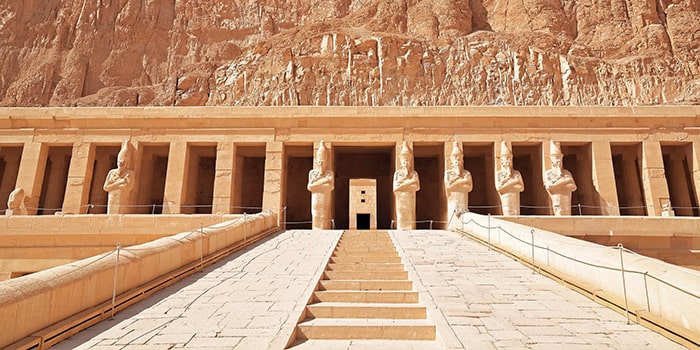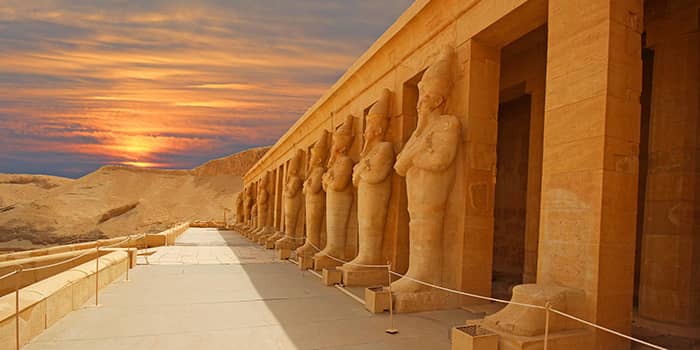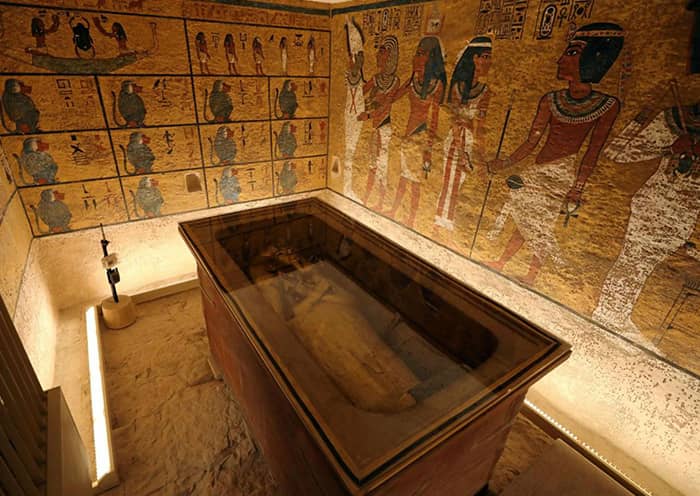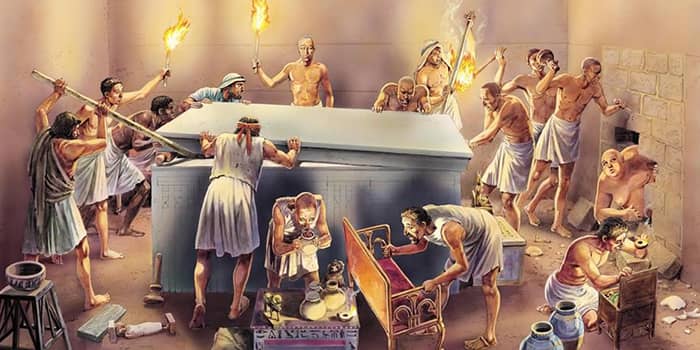When Was The Valley Of The Kings discovered ?
The pyramids were a great choice at first, it was a great resting place for a pharaoh, but it was also an easy target for the tomb robbers. That's why at the beginning of the New Kingdom, they started to think of a safer place for burying the deceased without risking them being robbed, so they thought about the Valley of the Kings.
What is The Valley of the Kings?
The Valley of the Kings, your gateway to the afterlife, was the major royal burial ground during the New Kingdom for 500 years for the Pharaohs from the 18th, 19th, and 20th dynasties. Although it is called the Valley of the Kings, it wasn't just burial for kings but also high priests, Queens, and other elites. The tombs of the Valley were stocked with treasures, furniture, clothes, and jewelry.
Where is The Valley of The Kings located ?
The choice of the location of the Valley of the Kings didn't just happen by chance; several things led to it. It is located on the West Bank of Luxor, in the hills behind El Deer El Bahri. Choosing the west side was a common thing for cemeteries as they believed that the sun god sets on the western horizon to be reborn in the eastern horizon, which supports the idea of rebirth.
The Valley is located in an area with isolated dry nature to save it from the tomb robbers. It had the shape of a natural pyramid; it was a sign of rebirth, thus guarantees eternal life for the deceased. So they set the tombs under the shadow of the pyramid-shaped peak called "Al Qurn." The natural pyramid shape was seen as a sign of the divine; therefore, it was assumed the area was a sacred funerary aspect of the goddess Hathor, "Mistress of the West."
How Many Tombs Are In The Valley Of THe Kings ?
The Valley of the Kings has over 60 discovered tombs, divided into East and west; the eastern side is the one with more iconic tombs. The first New Kingdom ruler buried that we know of is Thutmose I; he was the 3rd Pharaoh from the 18th dynasty. The rock-cut tombs of the Valley vary in size; the largest of them was built for
Ramses II sons, which had around 120 burial chambers.
Who Was Burried in The Valley Of The Kings ?
The Valley was once called the Great Necropolis of Millions of Years of Pharaoh. Some of the most significant tombs there are Ay, Horemheb, Ramses III, Ramses VI, Seti I, and Tut Ankh Amen. As 62 of the tombs discovered was before 1922, the archeologists were starting to lose hope in finding anything else till they discovered the most famous tomb of them all, that of King Tut.
Why The Pharohs Stopped Burying their Deceased in the Valley ?
After the 20th dynasty, the Pharaohs stopped burying their deceased in the Valley; no matter how isolated the area was, it still wasn't safe from the hands of the tomb robbers even before the end of the 20th dynasty. Again the ancient Egyptians started to think of other options; they stopped caring about the treasures. They just wanted to ensure the mummy's safety, so it can peacefully reach the next world and remain untouched.
What makes the Location of the Valley of the Kings special ?
The Valley of the Kings is from the must-see attractions in
Luxor; the decorated scenes inside the tombs from Egyptian mythology and clues about the beliefs and funerary practices are just outstanding. You can also visit the Temple of the
Queen Hatshepsut at El Deir El Bahri and pass by the two
Colossi of Memnon.
It is really impossible to find out what hasn't been discovered yet in the Valley of the Kings, Are there any more hidden underground mausoleums? Maybe the Valley still yields surprises.

